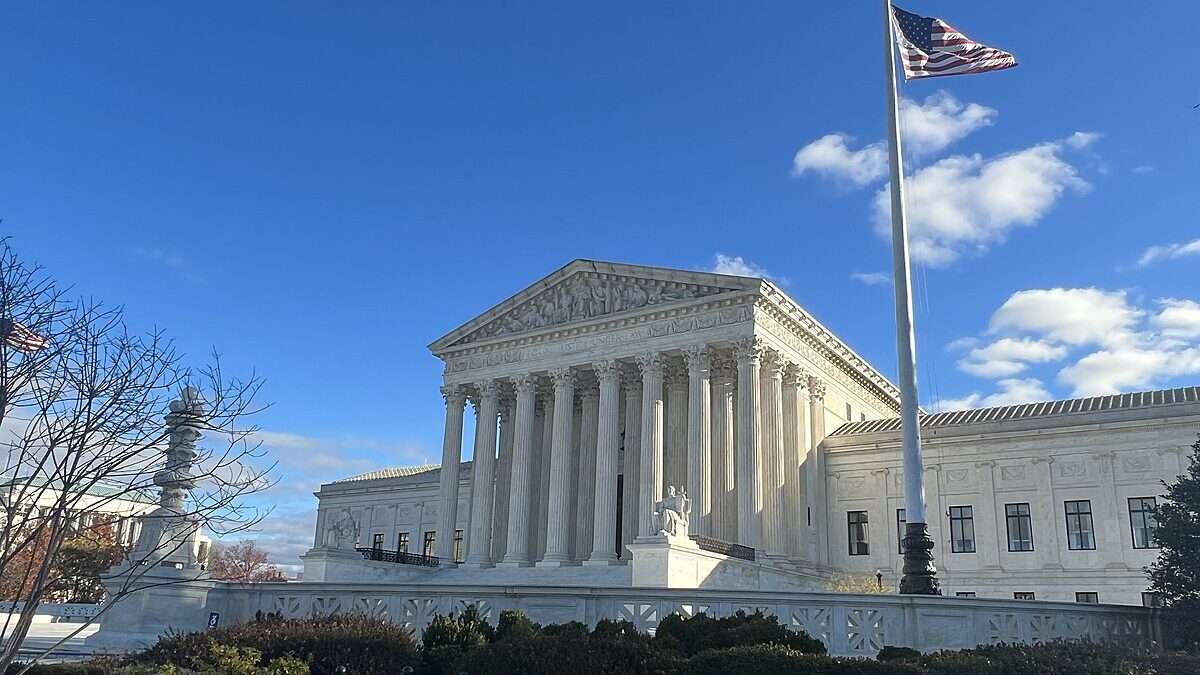
In July the U.S. Supreme Court announced it will hear the case of Jack Phillips, the cake artist in Denver whom the government ordered to “re-educate” his staff and file quarterly “compliance” reports for two years after he made a conscience-based decision not to create a custom cake for a same-sex wedding ceremony.
Jack’s case and the underlying issue—whether the First Amendment still protects the artistic freedom of creative professionals or is subject to the whims and demands of government officials—are sure to increase the attention paid to controversial “Fairness for All” legislation.
But first, a prefatory note: Lest your initial reaction to the legislation’s title be one of rapturous applause—finally, a law that takes everyone into account—remember that such monikers aren’t crafted to inform the public, but to persuade it. The “Affordable Care Act,” “Restoring Internet Freedom Act,” and the “USA Patriot Act” come to mind.
As Adam Liptak wrote in The New York Times, the old “boring names” have been replaced by “cute names,” ones that “seem focus-group tested.” Why not? As writer Harold Pinter once said, “It’s so easy for propaganda to work, and dissent to be mocked.”
Its cuddly name aside, careful study of “Fairness for All” legislation reveals that the proposed legislation is poorly conceived, demonstrably unfair, and wholly incapable of achieving its aims.
SOGI Laws Aim to Correct A Nonexistent Problem
To understand this new proposed legislation, we must first understand its ancestry. Such legislation is the immediate descendent of SOGI laws (laws that add the new classifications of sexual orientation and gender identity to existing “nondiscrimination” laws). I provide a more thorough explanation here, but in short, while SOGI laws purport to combat discrimination, in effect, they threaten every American’s constitutionally guaranteed freedoms. The operative word is “purport,” because available data reveals that systematic, widespread denial of housing, employment, or services to individuals who identify as LGBT doesn’t exist.
So without a significant, unresolved problem to address, these laws have functioned as Trojan horses, empowering governments to personally and professionally destroy individuals who seek to peacefully live and work in a manner consistent with their consciences (but at odds with the government’s views). One of the ways these laws operate is to silence those who hold to millennia-old views of marriage—views that the Supreme Court acknowledged in Obergefell are held “in good faith by reasonable and sincere people.”
Barronelle Stutzman is a prime example: This 72-year-old grandmother faces the loss of her business, savings, and home for declining a request by a long-time friend and customer to participate in the celebration of his same-sex wedding by designing custom floral arrangements.
Similarly, while Phillips gladly welcomes and serves anyone who enters his bakery, he can’t celebrate all events or convey all messages. In fact, Jack has a longstanding custom of not designing certain cakes that express messages with which he disagrees, such as cakes that celebrate Halloween, or contain racist, Anti-American, or vulgar messages. Ironically, the same Colorado commission that ruled against Jack held that three other nearby bakeries had the freedom to decline to design cakes with messages that criticized same-sex marriage.
Others who have faced personal and professional ruin because of these laws include Elaine Huguenin, Carl and Angel Larsen, and Blaine Adamson. These small business owners gladly serve people from all walks of life but choose not to participate in certain events or create custom art that would violate their consciences. Elaine’s desire to remain true to her faith led to a seven-year court battle that culminated in a New Mexico Supreme Court ruling against her and her husband, Jon. One justice stated that the Huguenins “now are compelled by law to compromise the very religious beliefs that inspire their lives” and added that this compulsion “is the price of citizenship.”
Recognizing the harmful effects of SOGI laws and lack of redeeming qualities, legislatures from no fewer than 15 states rejected such legislation in 2016 alone. Utah is the only state to pass a statewide SOGI law in the last six years, and its legislature did so because they believed a lie about SOGI laws—that such legislation was “fair.”
The Orwellian Nature of Unfair ‘Fairness for All’ Laws
Proponents of Fairness for All legislation don’t dispute the harm that can result from SOGI laws. Instead, they claim that SOGIs are inevitable, and therefore state legislatures must seek to mitigate those harms by inserting limited exemptions.
But these exemptions are nothing more than feeble deflections. They set forth who may enjoy constitutionally guaranteed freedoms and who may not. Laws like Utah’s, which its proponents trumpet as a model for other states, set forth only the most basic of First Amendment protections for a small subset of the population, leaving all others vulnerable and subject to lawsuits.
Suffice it to say, such laws do not bolster constitutionally protected freedoms for everyone. Instead, they empower the government to target viewpoints with which it disagrees, and invite activist courts to strip away the constitutional rights of individuals and organizations not explicitly exempted from the law. As I write elsewhere, such a voluntary surrender of fundamental freedoms is hardly a model fit for replication.
‘Fairness for All’ Legislation Disappoints Everyone
Another argument proponents make regarding legislation like the Utah SOGI is that it will satisfy both sides. In reality, it satisfies neither LGBT activists nor defenders of freedom, conscience, and true diversity. When Indiana introduced legislation similar to the Utah SOGI, Lambda Legal’s law and policy director, Jennifer Pizer, described the bill as “a wolf in sheep’s clothing” and argued it “aims to guarantee the right . . . to discriminate” and provides “lesser protections for LGBT people.”
Other LGBT groups were similarly dismissive and called for eliminating any religious liberty protections in future bills, even ones so basic as allowing religious institutions to adopt and enforce policies reflecting the core tenets of their faith on matters pertaining to marriage and human sexuality. Less than a year after the signing of the Utah SOGI law, activists introduced new legislation in Utah to strip away what little freedom the law left untouched.
Prominent religious and thought leaders are also unimpressed by the proposed legislation. More than 75 have signed a statement entitled “Preserve Freedom, Reject Coercion,” which “affirms every American’s freedom to peacefully live their lives according to their beliefs and opposes government coercion or censorship of fellow citizens who have different views.”
Proponents of “Fairness for All” legislation claim to desire a tolerant society, but true tolerance means respecting every person’s viewpoints and beliefs, even those with whom they disagree. It also means respecting constitutionally guaranteed freedoms and refusing to empower the government to demand that Americans sacrifice our national birthright. Freedom of conscience is not a token to be surrendered as the price of citizenship in a free society; it is the mark of citizenship and the fruit of a free society.









